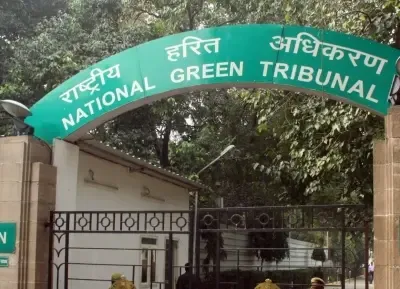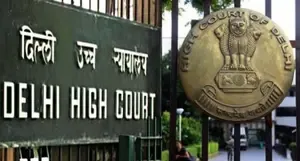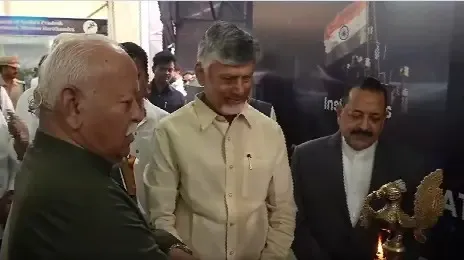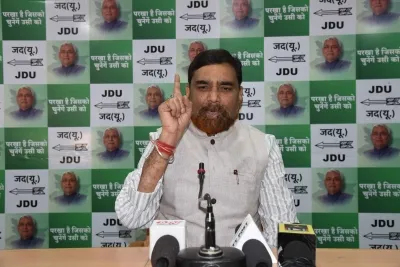What Action is NGT Taking Against Industries Polluting Ganga and Yamuna?

Synopsis
Key Takeaways
- NGT has ordered swift action against 1,700+ GPIs.
- Industries must comply with OCEMS installation.
- Immediate monitoring and accountability are emphasized.
- Reports will be submitted to ensure transparency.
- Public health and environmental protection are prioritized.
New Delhi, Nov 8 (NationPress) The National Green Tribunal (NGT) has mandated that the Central Pollution Control Board (CPCB) and state pollution authorities in Delhi, Uttar Pradesh, Haryana, and Bihar take "swift action" against over 1,700 Grossly Polluting Industries (GPIs) accused of releasing untreated effluents into vital water bodies, such as the Ganga and Yamuna.
A panel consisting of Chairperson Justice Prakash Shrivastava and expert member Dr. Afroz Ahmad was reviewing a petition submitted by Md Imran Ahmad, who claimed that numerous GPIs have not adhered to CPCB directives to implement Online Continuous Effluent Monitoring Systems (OCEMS), a real-time monitoring system for effluent discharge.
The petitioner pointed to a response from an RTI request made to the CPCB in July last year, which stated that all GPIs discharging over 10 KLD (kilolitres per day) of effluents are required to install OCEMS for monitoring parameters like pH, flow, BOD, COD, and TSS. Smaller units must set up flow meters at the discharge point along with a web camera.
The application highlighted a CPCB communication indicating non-compliance among GPIs, with 704 in Uttar Pradesh, 812 in Haryana, 21 in Bihar, and 149 in Delhi. The petitioner claimed that the state pollution control bodies had taken "insufficient action" despite multiple reminders.
He also informed the NGT that he had sent a detailed request to the CPCB Chairperson on March 8, 2025, demanding immediate enforcement, but stated that "no action has been taken".
The tribunal noted the "significant number of non-compliant industries" and their ongoing effluent discharge into essential water bodies, asserting that immediate regulatory intervention is necessary.
“We believe that the CPCB along with the relevant PCBs/PCCs must act promptly to ensure GPIs required to have OCEMS do not default and install the systems without delay,” stated the panel led by Justice Shrivastava.
It instructed the CPCB Chairperson to consider the applicant’s plea and issue necessary directives to the pollution control boards in UP, Haryana, Bihar, and the Delhi Pollution Control Committee to ensure the immediate installation of OCEMS in all such industries while enforcing strict compliance monitoring.
Furthermore, the NGT requested the Member Secretaries of the respective state boards and the Delhi PCC to submit compliance reports to the CPCB within two months.
The CPCB has also been instructed to undertake "suitable remedial and punitive measures" against the non-compliant entities.
The tribunal emphasized that the CPCB must provide a consolidated compliance report to the NGT Registrar General, after which the issue may be revisited if necessary.










